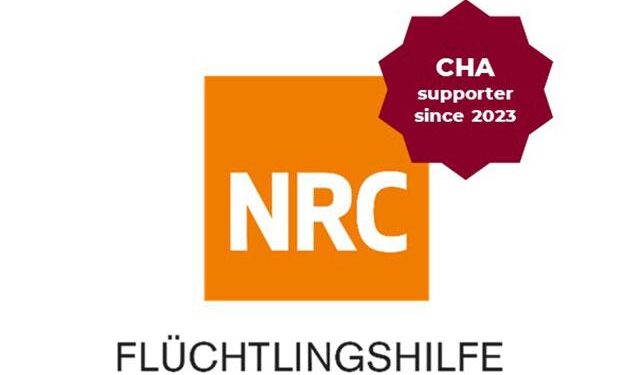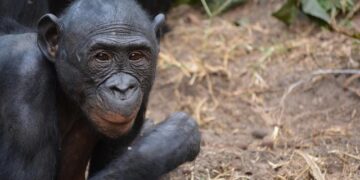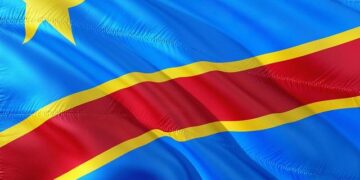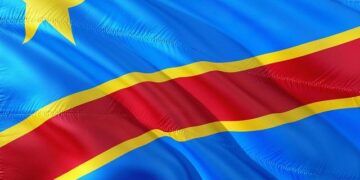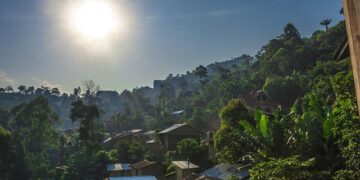NRC’s Vital Role in the Democratic Republic of the Congo amid Ongoing Humanitarian Crisis
As the Democratic Republic of the Congo (DRC) continues to grapple with one of the world’s most complex humanitarian crises, the Norwegian Refugee Council (NRC) stands at the forefront of relief efforts aimed at alleviating suffering and restoring hope. With millions displaced by conflict, economic instability, and natural disasters, the NRC’s multifaceted programs address urgent needs while promoting long-term solutions for the most vulnerable populations. This article explores the NRC’s initiatives in the DRC, highlighting its commitment to providing aid, advocating for the rights of displaced individuals, and fostering resilience in communities striving to rebuild their lives amidst ongoing challenges.
Challenges Facing Displaced Populations in the Democratic Republic of the Congo
Displaced populations in the Democratic Republic of the Congo face a multitude of challenges that significantly hinder their ability to rebuild their lives. Many of these individuals have been uprooted due to prolonged conflicts, which have left them vulnerable and without access to basic necessities. The prevalent issues include:
- Food Insecurity: With instability disrupting agricultural activities, many displaced families struggle to access sufficient, safe, and nutritious food.
- Lack of Shelter: Many people reside in overcrowded camps or makeshift shelters, exposing them to harsh weather conditions and health risks.
- Health Care Access: The lack of medical facilities and personnel in displacement areas complicates access to essential health services.
- Education Disruption: Children are often deprived of educational opportunities, which can jeopardize future prospects and community development.
Furthermore, the psychological toll of displacement is considerable, as individuals and families grapple with trauma and loss. The ongoing conflict creates an environment rife with insecurity, increasingly exposing displaced populations to various risks, including exploitation and violence. Solutions require a coordinated approach that addresses immediate humanitarian needs while laying the groundwork for long-term recovery and resilience. As such, partnerships between local governments, NGOs, and international organizations are crucial in tackling these pressing issues effectively.
Innovative Strategies for Humanitarian Aid in Conflict Zones
The Norwegian Refugee Council (NRC) has taken proactive measures to adapt its humanitarian aid initiatives in the Democratic Republic of the Congo (DRC), a region long plagued by conflict and instability. Leveraging technology and community involvement, NRC aims to deliver essential services more effectively. Key strategies include:
- Mobile Cash Transfers: By utilizing mobile banking, NRC facilitates quicker financial support, allowing vulnerable families to prioritize their needs efficiently.
- Community-Led Projects: NRC empowers locals to take charge of rebuilding efforts, instilling a sense of ownership and fostering resilience.
- Data-Driven Decision Making: The organization employs real-time data collection and analysis to assess the needs of displaced populations, tailoring responses to specific contexts.
Furthermore, NRC has established partnerships with local NGOs to amplify the reach and impact of its programs. By collaborating on education, health, and livelihood initiatives, the NRC ensures a multi-faceted approach that meets the diverse needs of affected communities. This effort is evident in their recent outreach campaigns, where they targeted over 10,000 families, providing them with both immediate needs and long-term solutions. A snapshot of these initiatives highlights:
| Program Type | Beneficiaries | Outcome |
|---|---|---|
| Cash Assistance | 3,000 families | Increased economic stability |
| Water and Sanitation | 5,000 individuals | Improved health outcomes |
| Child Education | 2,000 children | Access to quality education |
Advocating for Policy Changes to Support Refugees and Internally Displaced Persons
In the Democratic Republic of the Congo, the needs of refugees and internally displaced persons (IDPs) are growing increasingly urgent. As these populations face unprecedented challenges, it is crucial to advocate for effective policy changes that can provide them with the support and protection they urgently require. Key areas for reform include:
- Strengthening Legal Frameworks: Enhancing laws to protect the rights of refugees and IDPs can significantly improve their living conditions.
- Enhancing Access to Services: Policies should focus on ensuring access to education, healthcare, and livelihood opportunities.
- Increasing Funding Support: Allocating more resources toward humanitarian efforts is essential to meet the growing needs of displaced communities.
Moreover, collaboration among governmental bodies, NGOs, and international organizations is essential to mobilize resources and share best practices. By establishing a comprehensive multi-stakeholder approach, we can ensure that the voices of affected communities are heard, leading to policies that truly reflect their needs. Highlighting success stories, the chart below presents some notable initiatives undertaken in the region:
| Initiative | Description | Impact |
|---|---|---|
| Community Integration Programs | Facilitating refugees’ integration into local communities. | Improved social cohesion and reduced tensions. |
| Livelihood Workshops | Training displaced persons in skill development. | Enhanced employment opportunities and self-sufficiency. |
| Health and Nutrition Services | Providing essential health care and nutrition for vulnerable groups. | Reduced morbidity and improved overall health. |
The Way Forward
In summary, the Norwegian Refugee Council (NRC) continues to play a pivotal role in addressing the urgent needs of displaced populations in the Democratic Republic of the Congo. With ongoing conflicts and humanitarian crises, NRC’s commitment to providing essential assistance-ranging from education and shelter to vital legal support-remains crucial in improving the lives of the most vulnerable. As the challenges in the DRC evolve, the organization’s efforts will be instrumental in fostering resilience and hope among communities striving for stability and peace. Continued international support for NRC’s initiatives will be vital in ensuring these vulnerable populations receive the aid they so desperately need. For more information about their work and how you can help, visit nrc.no.
